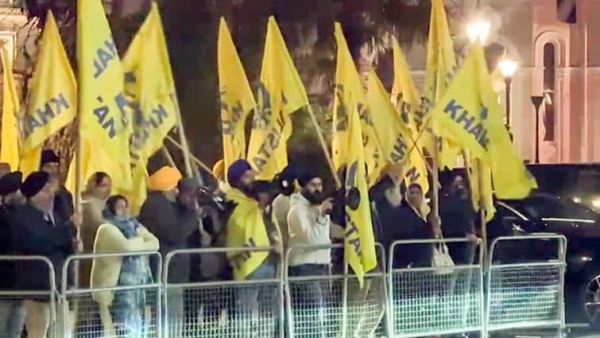
In a move that directly validates India’s long-standing concerns, Canada has, for the first time, formally admitted that Khalistani extremist groups are active within its borders and benefiting from financial support.
A new report released by Canada’s Department of Finance on money laundering and terrorist financing risks categorically identified Khalistani groups alongside internationally recognized terror outfits such as Hamas and Hezbollah.
The 2025 Assessment of Money Laundering and Terrorist Financing Risks in Canada stated that organizations like Babbar Khalsa International and the International Sikh Youth Federation—both proscribed under Canadian law, continue to attract funds from within the country. According to law enforcement and intelligence agencies, these groups fall under the category of Politically Motivated Violent Extremism (PMVE) and have historically relied on diaspora communities for financial backing.
Smaller Networks Still Active
“Several terrorist entities listed under the Criminal Code in Canada that fall under the PMVE category, such as Hamas, Hezbollah, and the Khalistani violent extremist groups Babbar Khalsa International and the International Sikh Youth Federation, have been observed… to receive financial support originating from Canada,” the report noted.
While these networks were once extensive, authorities now believe they operate in smaller pockets of individuals still loyal to the Khalistan cause, though without strong ties to any single group. The report also revealed that extremist groups misuse multiple funding streams—ranging from charitable organizations and non-profits to criminal activity, drug trafficking, and even cryptocurrencies, to sustain operations.
India-Canada Ties Strained Over Extremism
The Khalistani movement, which seeks to carve out an independent state from India’s Punjab region, has long been a flashpoint in India-Canada relations. New Delhi has repeatedly raised objections over extremist activities in Canada, accusing Ottawa of turning a blind eye to anti-India elements.
Tensions peaked in September 2023 when then–Prime Minister Justin Trudeau alleged India’s involvement in the killing of Khalistani terrorist Hardeep Singh Nijjar on Canadian soil. India dismissed the accusation as baseless, sparking a diplomatic crisis that saw both nations withdraw their envoys.
New Leadership, Old Challenges
Relations appeared to stabilize only after Mark Carney took office as Canada’s Prime Minister. Carney pledged to address India’s security concerns, leading to the reinstatement of ambassadors. However, decisive action against Khalistani groups is still awaited.
For decades, reports, witness accounts, and video evidence have pointed to extremist activity flourishing in Canada. While Ottawa has finally acknowledged the problem, the spotlight now shifts to whether Prime Minister Carney’s government will move beyond words and deliver concrete measures to curb terror financing.
-
Gazelle chairs, zebra sofa: Hunting memorabilia draws visitors at Abu Dhabi's Adihex

-
'GST Cut On Agriculture Equipment To Increase Production, Exemptions Will Boost Organic Farming,' Union Minister Shivraj Singh Chouhan Hails New Tax Slabs

-
UK households urged to address 1 issue or risk £30k fine

-
Today's horoscope: Free daily horoscope for Saturday, September 6, 2025

-
Now your smartphone will alert you before an earthquake, you just have to activate this hidden feature
